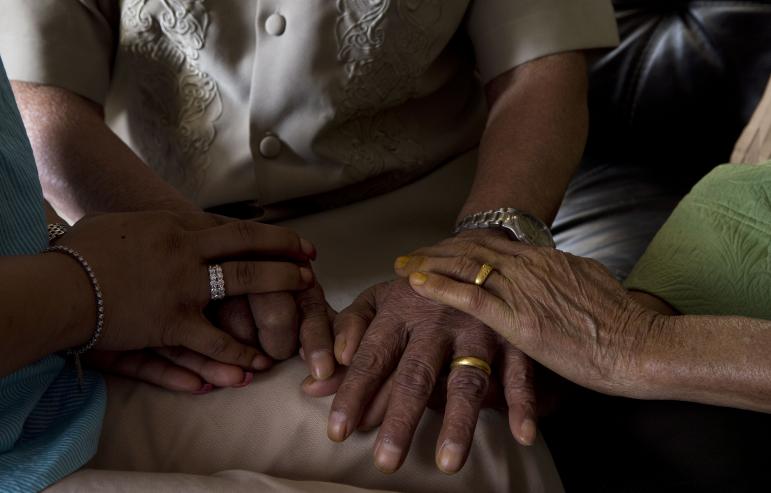
Dealing with the Diagnosis When a Disease Hits Home
This article was written by Rochelle Mills, the Branch Manager in Fort Wayne, Indiana for Caregiver Homes.
In 2007, my mother was diagnosed with Frontal Lobe Dementia. This diagnosis confirmed what my brothers and I had suspected for a number of years – something was wrong with mom. She got lost on her way to my brother’s house on Christmas Day. She would say, “I have never been here before,” as we made our 100th trip to the Dairy Queen for her beloved chocolate cone. She was fascinated with maps and had 20 large boxes of them because she was afraid of getting lost. At the time, I was working in the Geriatric Unit at the Neuropsychiatric Hospital in Salt Lake City. I had worked with people who had Alzheimer’s disease, and I thought I was equipped to handle my mom’s diagnosis. But being informed about a disease is not the same thing as living it, and the experience has changed the way I work with families.
When we received her diagnosis, my little brother and I both lived out of state with our families. All of the caregiving was left to my brother, Scott, who remained in Indiana. I will admit I was thankful to live so far away, and I suspect my little brother felt the same way. I only came home when it was absolutely necessary, which was hardly ever. Despite my knowledge about the disease, it did not prepare me for how I would feel. A part of me wanted to avoid it. If I was far away, I couldn’t make the wrong decision for my mom. At first when Scott would share with us, he would joke about her latest escapade and make us laugh. We rely on humor a lot in my family. However, it was not so funny when he had to sleep at her bedside in the hospital for 30 straight days. Not surprisingly, she got worse. And so began the emergency 3-way calls with my brothers. What to do? Finally, we had no choice. We took the steps necessary to be guardians because she was a danger to herself. This was a long and painstaking process. My brother and I flew in to go through the court proceedings and clean out her house—a home once filled with so many memories.
Now in my work supporting elders and their caregivers, there is an immediate connection. For those families who are dealing with an Alzheimer’s diagnosis, I can recognize their experience. It has taught me patience. It reminds me to take my time with people. I can identify when a family is struggling with the situation because I have wrestled with the questions and feelings myself. Over the years, I have experienced a flood of emotions. Frustration. Mom is still controlling our lives yet she is not aware of it. Guilt. Is this the right thing to do? Pain. It’s terrible to watch mom change from visit to visit. Sadness. We cleaned out her home to sell it to pay for expenses. Fear. Will this happen to me? Would anyone take care of me?
I do not volunteer advice to the people I support unless they ask, and still, I only share what worked for my mom and my family. But if I could do anything over, I would have gone to support groups. I needed to hear that what I was feeling was normal, that what mom was doing was normal. All of it—the pain, the loss—was normal, and I was not alone. My biggest surprise was when I started to talk to my friends, professional colleagues and classmates. We shared our suffering with each other. And you do suffer. A once vibrant woman, who ran, road bikes for miles, and lived a self-sufficient life has become a very different woman. She is more fearful and her vision has changed. Dark floors look like large holes to her, and she has difficulty walking over them.
Realizing my brother needed help and would never ask for it, I moved back to Indiana. Our family has worked together to make sure mom has the best care possible. Moving 1,500 miles to come back has not been a hardship. My experience with this disease has made me more compassionate in my work, and my choice to move closer to my mom has enriched my life. We still find occasions to laugh, have fun and make memories together. She may not remember, but I do.


